Masters of the Universe: Revelation on Netflix is a sequel that doesn't retain the same magic


They say you can never go back again, and sometimes, it’s better not to.
Masters of the Universe: Revelation, the latest cartoon revisitation from streamer Netflix has landed and what’s not to love about it? Unlike the recent She-Ra and the Princesses of Power, which uses the name and concept, but not the legacy of the franchise, Revelation is intended to be a sequel of the hugely popular 1980s cartoon and toyline.
This means a return to Eternia, where we find out what happens to the characters many of us grew up with, from Prince Adam, Teela, Man-At-Arms, Sorceress, and Cringer, to Skeletor and Evil Lynn.
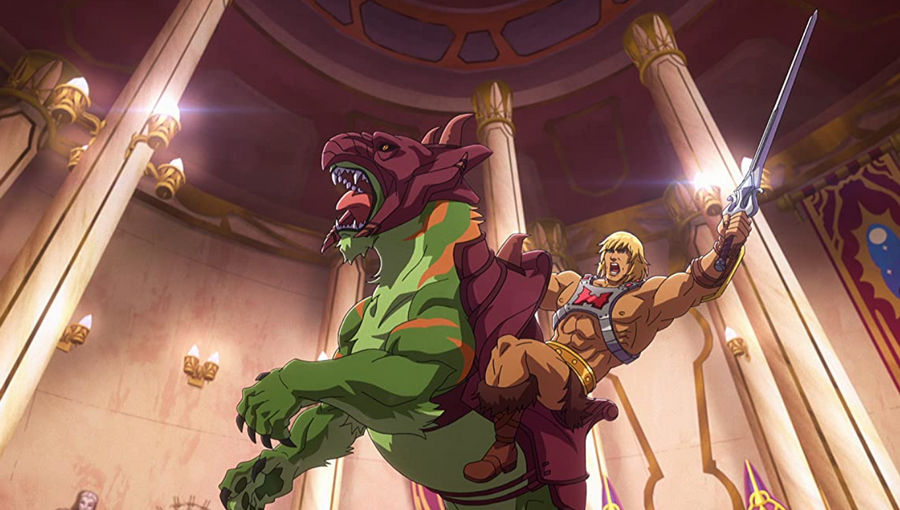
Masterminded by comic book fanboy and cult filmmaker Kevin Smith, expectations have been running high, especially with the recent well-received trailer that evoked nostalgia alongside a high-octane compilation of new footage from the series. But while sentiment is a powerful tool, few remember that the original series, He-Man and the Master of the Universe wasn’t exactly known for great storytelling either.
It was a great representation of good vs evil, where hulking alpha men fought against monstrous creatures, with both sides filled with characters possessing one unique power or ability, aside from their muscular form, but the villain-of-the-week approach got tired really fast.
Each episode ended with a lesson of the day, and while there were fights galore, much of the combat was done via wrestling movies of tossing and throwing, and as menacing as Skeletor looked, he was more of a bumbling oaf who longed to enter Castle Greyskull to claim the source of great power as his own.
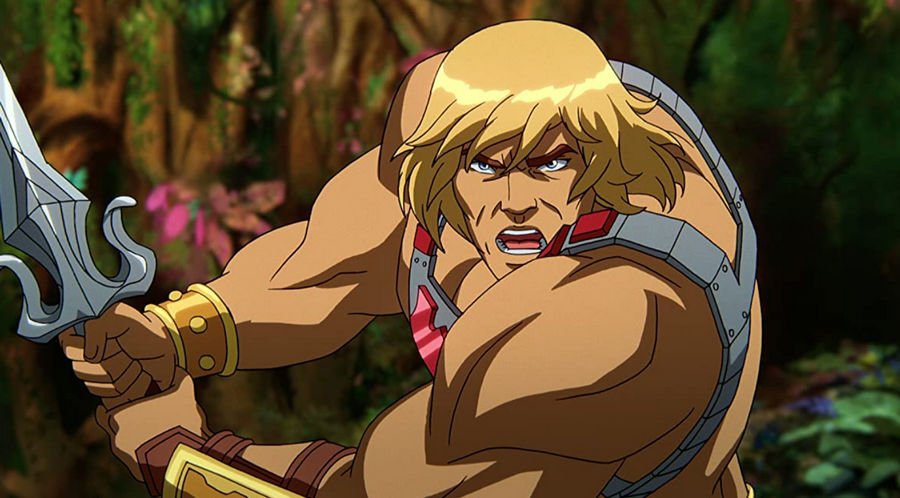
From the very first moments of Revelation, it is obvious that Smith has great love for the source material, even if he is also open to revisiting some of the more obscure elements of the franchise in this short, five-episode Season 1.
With the dozens of characters at his disposal, Smith mainly makes use of the classics and adds an impressive voice cast to the project, including Man-At-Arms (Liam Cunningham), Orko (Griffin Newman), Teela (Sarah Michelle Gellar), King Randor (Diedrich Bader), Queen Marlena (Alicia Silverstone), Roboto (Justin Long), Beastman (Kevin Michael Richardson), Tri-Klops (Henry Rollins), Trap Jaw (Diedrich Bader), Faker, Evil Lynn (Lena Headey) and Mer-Man (Kevin Conroy).
But while Revelation sells itself as a sequel to the original, a lot of what we’re getting are throwaway references that yes, this show follows the original, but nothing else.
Characters have gone through a redesign, even if they retain the same outlook and colour scheme, but the music is something new altogether that doesn’t pay homage to the original, or even lift elements that evoke a throwback. That famous tune that accompanies Adam’s transformation to He-Man? It’s gone.
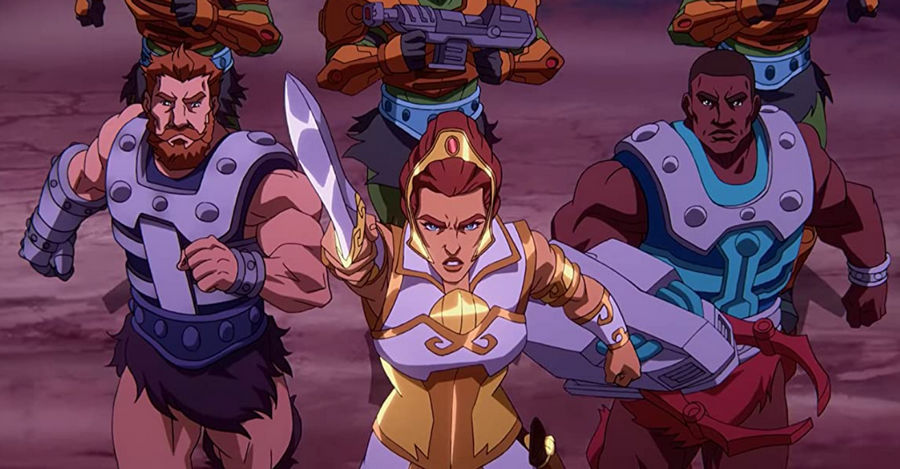
It would be unfair to note that the voice acting is all different, since some of the original voice actors might have since retired, but there’s not even an attempt to have a deeper reference. And two of the biggest changes are with Prince Adam and Skeletor.
Instead of having Adam and his alter-ego He-Man be physically similar, Adam, voiced by Chris Wood, now looks like a scrawny (when compared to his muscular compatriots) teenager, and while there is nothing wrong with Wood, John Erwin is sorely issued.
Meanwhile, Skeletor has ditched his more clumsy approach, and Mark Hamil, of Star Wars fame, is channelling more Joker menace here. Alan Oppenheimer, who voiced Skeletor in the original is present, this time as Moss Man.
Which audiences barely have time to care about these two changes but won’t have time to because (SPOILERS AHEAD) both Prince Adam/He-Man and Skeletor disappear at the end of the first episode, making Revelations more of a, Where’s Waldo?
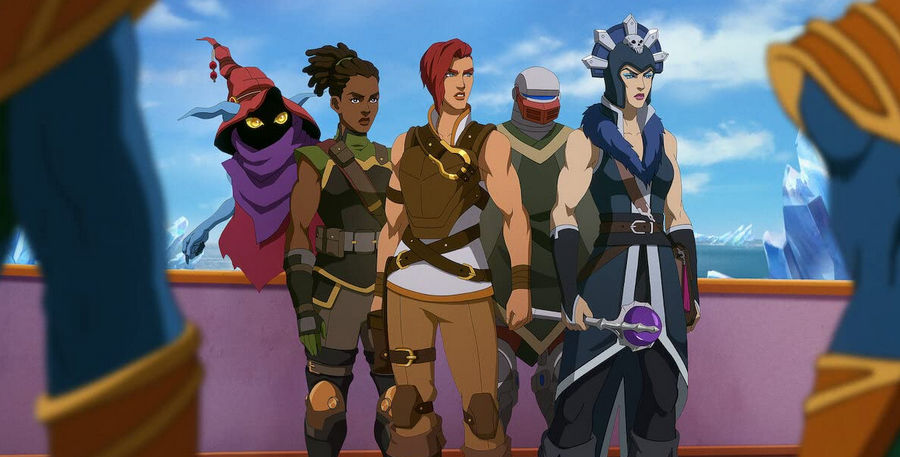
Now we know that He-Man is not in the show’s title cards as the rest of the season follows Teela on her journey to find Prince Adam’s Power Sword, to return magic back to Eternia. But with He-Man gone, Eternia is in turmoil as the forces of evil have gained a greater foothold on parts of the planet, as the good guys fight for what remains of the planet.
If these elements sound vaguely familiar, that’s because this particular story has been told in the comics, in issues 12 and 13 of the Masters of the Universe comic published by Marvel/Star Comics in 1988. In that story, Lifetime, the Power Sword gets lost in time and a young Prince Adam finds himself in the future where, without the sword, He-Man never reappears, and evil has taken over Eternia. This leaves the heroes on a quest to find the sword, to overthrow the forces of evil.
ALSO READ: Masters of the Universe: Revelation premieres July 23 on Netflix
This is not to say Smith lifted his sequel from the old comics, but the story beats are similar, and audiences would expect more from one of geekdom’s fan favourite writers.
This is the guy whose Guardian Devil storyline from the Daredevil comics remains one of the high points of the long-running series, and whose resurrection of Green Arrow inthe DC Comics series set a new standard for the iconic comics character. Maybe if Netflix would have just allowed Smith to call this series what it really is – Teela and Her Sisters Look For the Masters of the Universe.
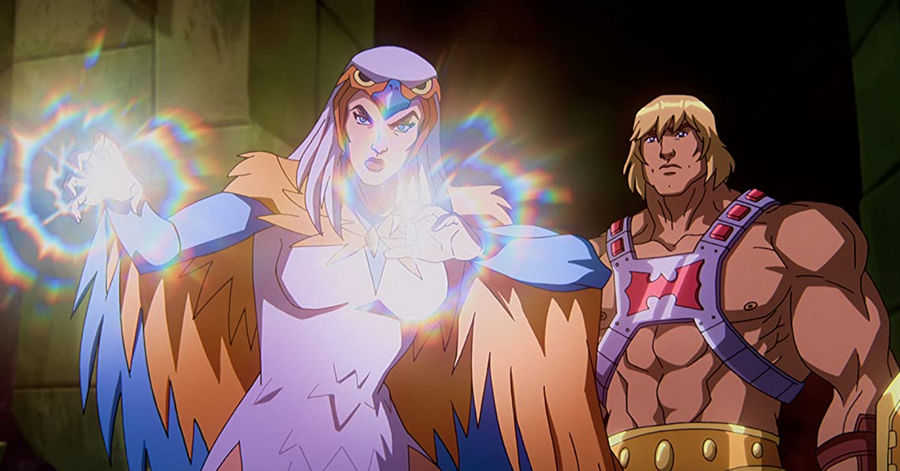
In a world where magic is almost gone, the daughter of the Sorceress (yes, Smith references this long-running secret in Revelations but never spells it out for the Woman-At-Arms) cobbles together a rag-tag team of warriors, including one from the side of evil, as they attempt to locate both halves of the Power Sword, in Eternia’s heaven and in hell.
As this is a Kevin Smith project, there are multiple references to the old show that would make fans go, I know what he’s referring to, as well as some changes that seem more cosmetic than necessary. Oh, there’s also a notable character death (or two, depending on how you look at it) that seems rather unnecessary and like an Orko spell gone wrong, one hopes that this gets corrected in subsequent seasons.
Is it necessary to turn King Grayskull into a black character? Maybe, but there’s little value in it. The group also introduces Andra to the cartoon for the first time, but when she was first introduced in the Marvel/Star comics back in the 80s, she served as a supporting white character. Changing her race does little here, as does her character, in the grand scheme of things in this series.
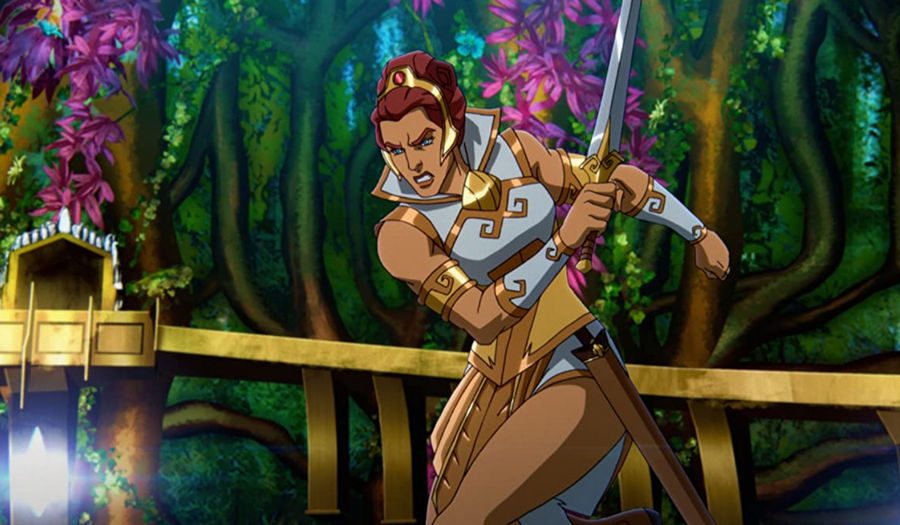
That said, Revelations does tap into some of the lore of the franchise, such as who Teela’s mother is, if Queen Marlena knew if her son was the most powerful man in the universe, what secrets lie in Castle Greyskull, and who forged the Power Sword. After countless reboots and reimaginations over the last three decades, it’s nice to know what is regarded as canon.
Still, these are the easy elements to incorporate, and with Evil Lynn’s augmented role in this series, Smith could have taken an additional step and addressed a lesser known story point, that Queen Marlena was originally an astronaut from Earth, and she was accompanied in her ship by Evelyn Powers, Biff Beastman, and Dr. Scope, who ultimately became Evil Lynn, Beastman and Tri-Klops in the series.
On the surface, five episodes for this seems short, but like the new Transformers: War for Cybertron trilogy, also on Netflix, there is just something missing in the entire presentation. Something familiar is new again, but there are many notable things missing and fans will wonder what happened.
Maybe we’ve all grown up, and we should learn to accept that what we knew and loved as a child can never measure up under the scrutiny of modern lenses. And in this case, the powers of Netflix have given us a sequel, but it doesn’t quite have the power to retain the magic.
A twist in the final episode sets up a new season, but to be honest, let’s just bring back Hordak and Etheria, and the real She-Ra is the hero we’re all holding out for.
6/10 6/10
This article was first published in Geek Culture.